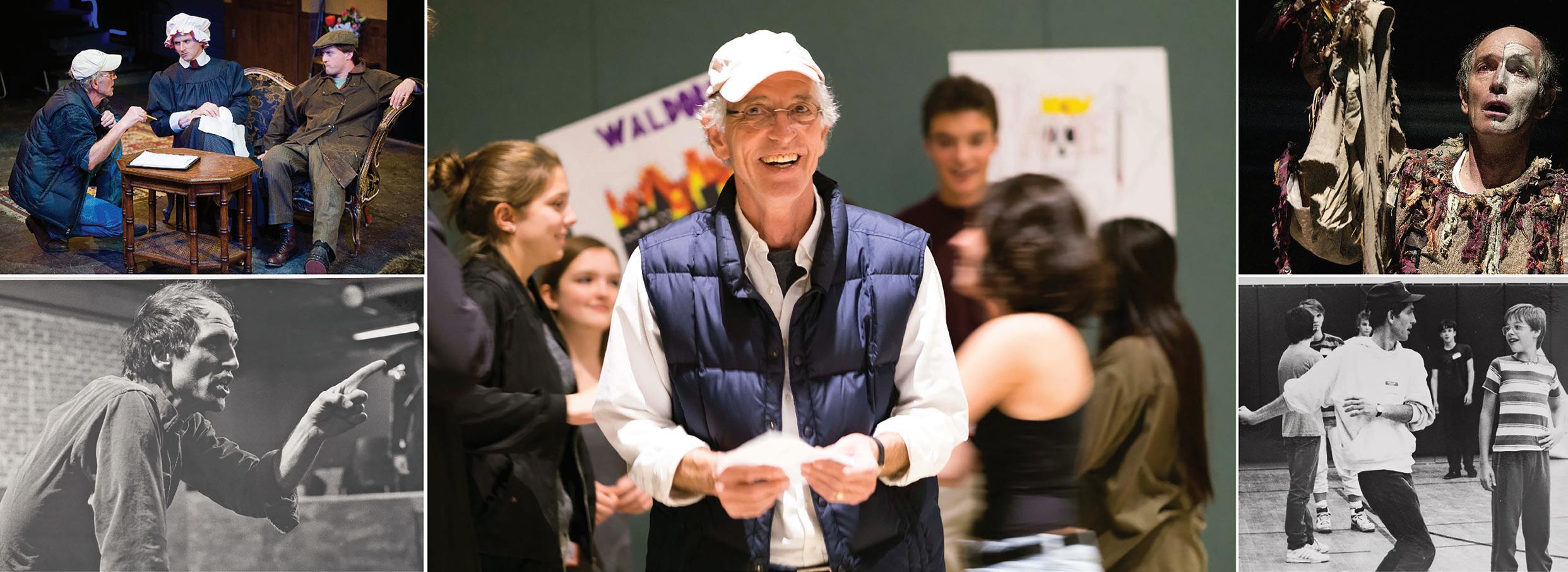
2 minute read
EDUCATION PROGRAM
Left to Right: Kevin G. Coleman, Ryan Winkles, and Josh Aaron McCabe, Irma Vep, 2003. Photo by Kevin Sprague Kevin G. Coleman as "The Fool", King Lear, 2003. Photo by Kevin Sprague.
The original members of Shakespeare & Company are known, reverently, as The Founders – and Director of Education Kevin G. Coleman is one. Here from the very beginning, Coleman has been involved with virtually every creative aspect of the Company, from acting to directing, training to fundraising, and beyond. He continues to oversee programs that introduce Shakespeare to students as young as six, high school students, juvenile offenders, teachers, teaching artists, and directors, as well as work with professional actors through the Company’s Center for Actor Training. Coleman has taught, directed, or served as a guest artist at countless venues and institutions, including the American Stage Company, Harvard, MIT, Queensland University of TechnologyBrisbane, Lincoln Center, and many others. In the world of Shakespearean theater, some might say Coleman has seen it all. And before 2020, he may have agreed. But in these last few years that had everyone on pandemic pause, Coleman said an already vulnerable population – the high school students he sees through the Fall Festival of Shakespeare, now in its 34th year – have taken a particular hit, creating a need for new directions and course corrections. “These students are in crucial developmental periods in their lives, and have been missing out for almost three years now,” he said. “There’s a lot of hopelessness. Many show up as a more cautious version of themselves, and have become much more inwardly focused and guarded – hesitant to commit to any project or activity. “Mental health in adolescence is always a concern, but now, it’s become much more serious,” he continued. “We attribute it to what they’ve endured, and continue to endure in the trauma and stresses of society and the world.” Coleman added that the experience of theater can be a ‘reaching out’ for connection; a corrective to the insulated world to which some students have retreated. “Theater is life-affirming. It’s revealing oneself, taking risks, exposing one's humanity, and expressing vulnerability,” he said. “So now we ask ourselves: what’s the corrective for this cautiousness? What steps can we take to bring about a more outward focus - a more hopeful and curious energy and restart the inertia?” The course is not yet clear, but Coleman says there’s support in Shakespeare’s words, and reintroducing students to language that excites, provokes, deepens thinking, and awakens feeling. He added that the feelings embedded in Shakespeare’s language also help students rediscover what the English language could be. “There’s power and beauty in its eloquence – there’s courage and heartbreak,” he said. “Most of all, there’s life in his language – and it calls out to life.” ■










